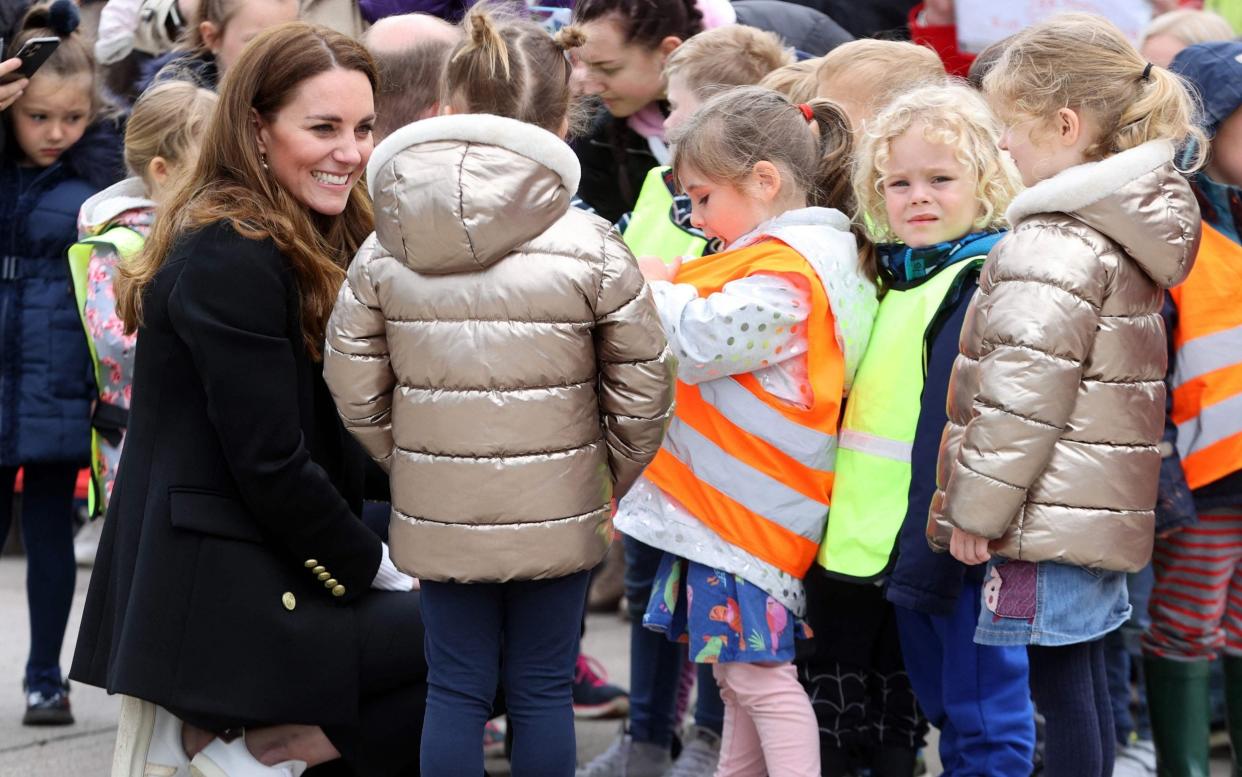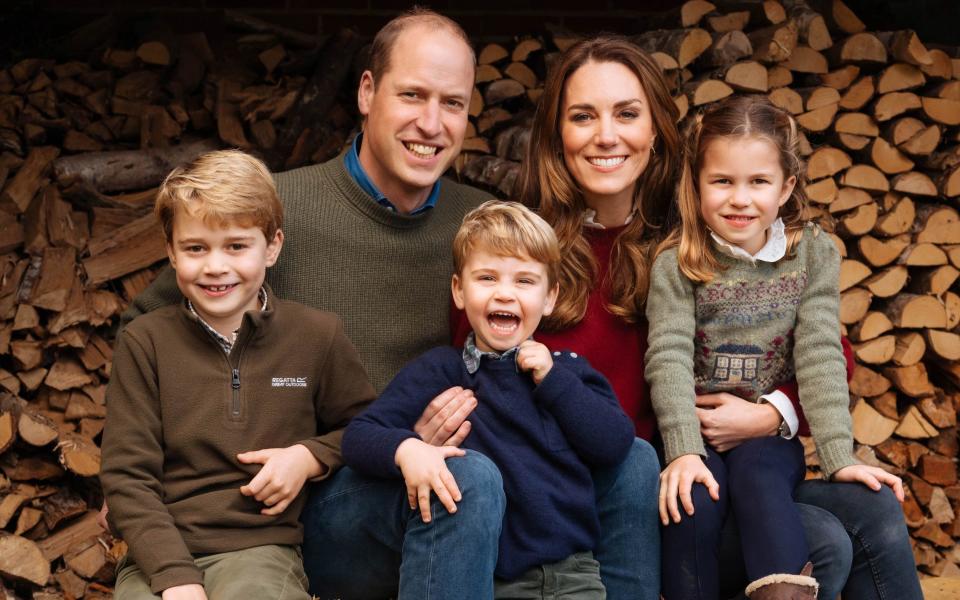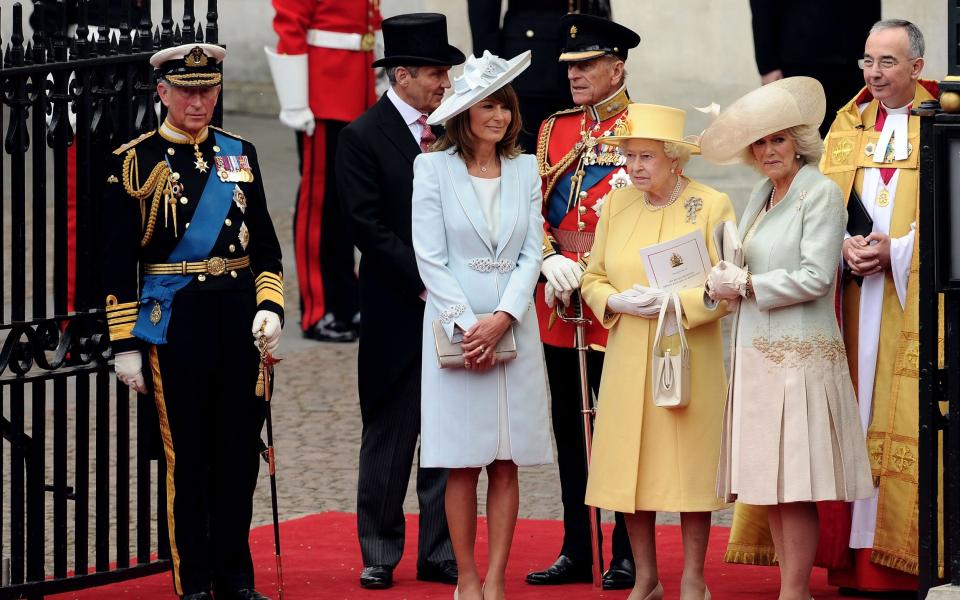Exclusive: the ‘profoundly powerful’ moments that shaped Duchess of Cambridge’s children’s charity work

It all started with secret visits the public never got to see. Newly married, and with the world’s press chronicling her every move – down to the details of her designer dresses – the Duchess of Cambridge resolved to go "below radar".
Acting as Prince William’s "plus one", rather than a fully fledged solo royal in those early days, the newest addition to the Royal family knew that she wanted to find a cause she could champion as impactfully as Diana, the Princess of Wales’s landmine campaign; it was simply a question of where to find it.
Having already announced her first patronage of Action on Addiction, a charity working with people with drug and alcohol problems, Hope House, a women-only rehabilitation centre in Clapham, south London, seemed as good a place as any to start.
It was October 2011 when the then 29-year-old Duchess paid the first of several, incognito visits in a bid to find out what had sent its clients on a downward spiral of self-destruction.
According to Rebecca Priestley, who accompanied the Duchess on the visit and would go on to spend five years as her private secretary, it played a pivotal role in her decision to put childhood at the heart of her philanthropic endeavours.
Speaking on the record for the first time, Mrs Priestley, who is now an executive coach, recalled: "I remember going up to Anglesey, where they were living after the wedding, to have a conversation with the Duchess about her royal life.
"At that point, she had the philanthropic world at her feet. She could have done anything she wanted in the charitable arena. Typically, she had put a lot of thought into it already. Addiction was an issue she was instinctively thinking about – but she was also genuinely interested in understanding what support was there and what role that played in the bigger picture of mainstream societal issues."
‘A sense of pre-destiny’
With the Duke having flown to the Falklands for a six–week tour of duty with his RAF search and rescue squadron, Mrs Priestley put a programme together to support the Duchess’s desire to "listen and learn".
"A lot of it was behind the scenes, just talking to people and hearing where it was that they needed more help. The one thing that united all of the women at Hope House was that the derailing had started so early on. They could trace the problems in their adult lives back to childhood."
A subsequent private visit in February 2012 to Clouds House, a treatment centre in East Knoyle in Wiltshire, served as further confirmation that the early years should be a key area of focus. But it was during a later meeting with female inmates at a detox unit at Send Prison in Woking when the penny well and truly dropped.
"It was a profoundly powerful moment,” recalled Mrs Priestley. "You go in there with this preconceived idea that these women have done things wrong, that it was their fault. Then one woman started speaking to the Duchess about her earliest memories of seeing needles on the floor of her home.
"She had always thought addiction was a misunderstood issue, but after this, she became concerned that there was a pre-destiny about those affected – an inevitability about it. These women were born into it and there was very little chance of escape."
The experience set in train a sequence of events that will next week culminate in the Duchess, 39, stepping up her ambition in driving awareness and action on the impact that early childhood can have on society at large.
She will launch a new initiative through the couple’s Royal Foundation to further explore the science around early childhood, raise awareness of the issue and foster collaboration and partnerships across relevant groups.
‘One of the great issues of our time’
According to Lord Hague, who became chairman of the Royal Foundation last September, the "ambitious" new project will be equal in stature to William’s £50 million Earthshot Prize, launched last year with Sir David Attenborough to find workable solutions to climate change and environmental problems.
"The Duchess truly believes this is one of the great issues of our time," said the former Tory leader. "This is the central plank of her work in the way conservation issues are for the Duke. It’s a hugely significant moment."
While politicians are often in a rush to make a difference during the comparatively short time they have in office, royals are there for life, which perhaps explains why Kate has taken 10 years to get to this point.
Having been instrumental in launching the Heads Together campaign with William and Prince Harry in 2016, designed at tackling the stigma and changing the conversation on mental health, it was not until 2018 that she convened a steering group of experts to look at how cross-sector collaboration could bring about lasting change.
In January, she delivered a landmark speech after her Five Big Questions on the Under Fives survey garnered over 500,000 responses.

"People often ask why I care so passionately about the early years," the mother-of-three said.
"Many mistakenly believe that my interest stems from having children of my own. While of course I care hugely about their start in life, this ultimately sells the issue short. If we only expect people to take an interest in the early years when they have children, we are not only too late for them, we are underestimating the huge role others can play in shaping our most formative years, too."
Pointing out that the social cost of late intervention has been estimated to be over £17 billion a year, she added: "The early years are therefore not simply just about how we raise our children. They are in fact about how we raise the next generation of adults. They are about the society we will become."
Investing in early years ‘can transform society’
According to Eamon McCrory, Professor of Developmental Neuroscience and Psychopathology at University College London, the Duchess "has a vision of how she can help transform how we as a society view and invest in the early years for the benefit of society".
Describing her interest in "the role the brain shapes our early experiences and how that sets us on a path to adult life", he explained: "When you look at very young babies and infants, on the surface they don’t appear to be engaging in complex emotions so there's a tendency to underestimate the millions of synapses that are being formed every minute. But science is telling us we have to look under the bonnet.
"There’s no question that for the Duchess, this is a lifetime piece of work. The last five years laid the foundations, now we are entering a more proactive phase.” Described by one source as “thoughtful, professional and determined to do a good job,” there is a sense that Kate has never been in it for the early wins, but the long haul.
As one well-placed insider put it: "She took the job very seriously right from the very beginning. She continues to want to get it right and do her very best - for the institution, for William and the importance of the work she’s doing.
"She doesn't just want to rock up for a picture opportunity, which is why she used to get quite frustrated with all the early focus on what she was wearing. She really cares about this stuff."
Another source said she was "much more fun" than people give her credit for, pointing out how she has grown in confidence having found a cause that she is not only passionate about - but also well informed.
As Lord Hague put it: "She’s been reading the books and had trustees reading the books. People assume her interest in the early years is because she has children – actually it comes from all the adults she’s met." The other key influence has been Kate’s own idyllic childhood.
Brought up in leafy Bucklebury in West Berkshire by her entrepreneur parents Michael and Carole Middleton, pictured below with the royal family, the Duchess has never made any secret of how fortunate she has been to be brought up in a loving and supportive family.

"She always recognised that she benefited from such a great start in life," added Mrs Priestley.
"That’s why sport and the outdoors has always been a key theme for her. She was always asking how those sorts of experiences could be made accessible to others."
For Dame Benny Refson, president of the children’s mental health charity Place2Be, where the Duchess has been patron since 2013, Kate’s grounded upbringing has proved an asset.
“The Duchess listens and people feel heard and valued. It’s nothing to do with privilege. The groups she meets in challenging areas in London don't look at what she's wearing. What makes a difference is that an important person has shown a genuine interest in them. She can relate without passing judgement, which is so important."
Having started out as a reticent public speaker, the Duchess has finally found her voice – and next week she will have a lot more to say.

